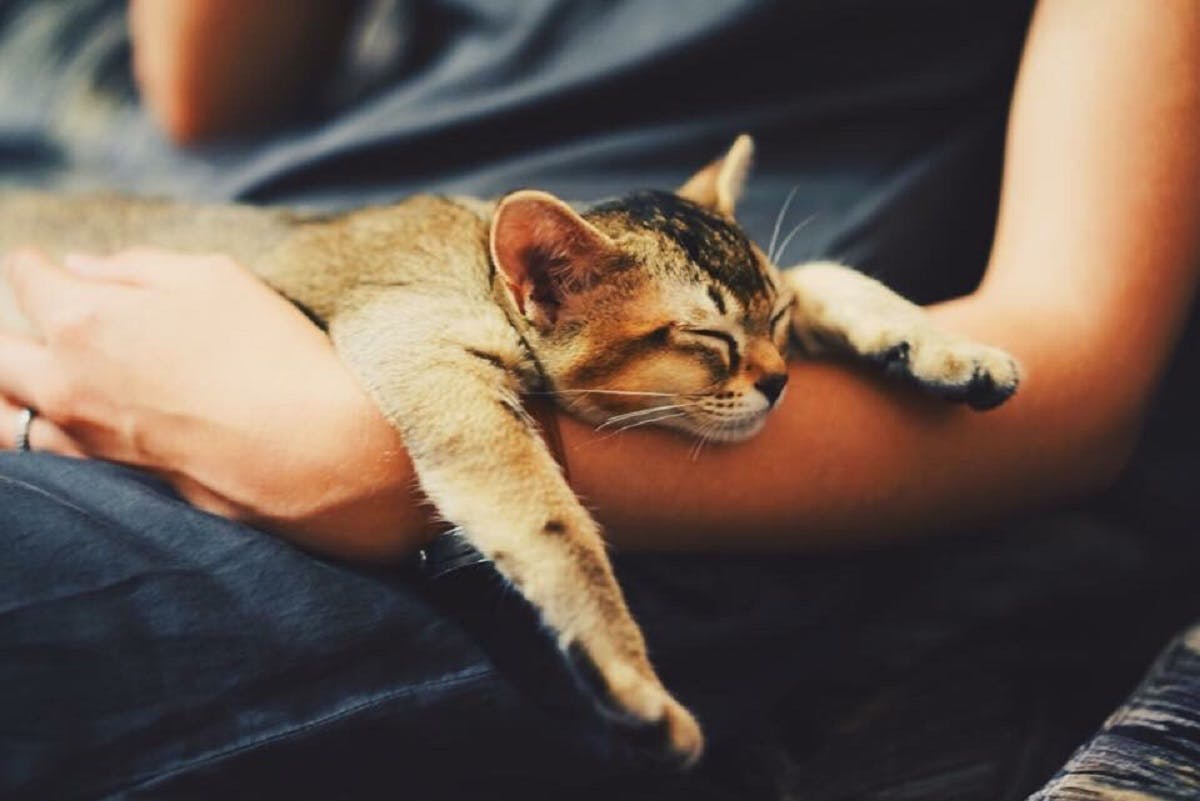Cat Owner Questions Answered
If you hear something in the middle of the night, it may be your furry friend. Naturally, it may be no surprise to see your kitten or cat roaming your home at all hours of the night. So, you may be asking yourself, “are cats nocturnal?” Fortunately, we sat down with Trupanion veterinarian Dr. Caroline Wilde to learn more about your cat’s nighttime activity and what it may really mean for your best friend.
Are cats nocturnal?

Whether you have a kitten, adult cat, or multi-cat household, you may have seen or heard your cat up and moving around at night. So, are your cats actually nocturnal? Wilde points out what it can mean for your furry friend.
“Cats are actually not nocturnal, but rather ‘crepuscular,’ which means their peak activity occurs at dusk and at dawn. They have evolved to maximize their activity around these hours because this minimizes their risk from their natural predators, which are active during peak hours of daylight and darkness. So some cats are more active in the very early morning hours, which to most of us would be perceived as ‘nighttime hours,’ as humans are diurnal.”
Why do cats prefer nighttime?
Cats are unique and may have preferences when it comes to their schedule. While some furry friends may want to play at night, others may want to explore their home. If you have a new cat or kitten, they may want to adventure without any interruptions. For example, “some cats do seem to be more active in the middle of the night, and this is due to their natural hunting instincts, as a lot of their prey species, such as rodents, tend to be more active at night,” says Wilde. Naturally, every cat is different and they may be prone to roam at night. Consider cat-proofing your home, so no unexpected situations happen while you sleep.
The importance of cat naps
It may be no surprise to find your best friend lounging in a chair or snoozing on a cat perch. After all, cats may be known for taking a cat nap. But, are they really sleeping? In fact, a fun fact about cats and power naps, it may be a bit of a myth. For example, “it seems like cats are napping all the time, but what they’re doing is actually resting in preparation for short bursts of very intense activity,” says Wilde. So, next time you see your cat napping on the couch, they may just be resting to prepare for a night of adventure!
Tips to help train your cat to sleep at night
Any pet can be hard to train, and your cat or kitten is no exception. In fact, your cat may be stubborn when it comes to their schedule or daily activities. Wilde points out some tips to help ease and settle your furry family member at night.
Consider the following:
- There isn’t much you can do to change a cat’s natural instincts, but what you can try to model their behavior through positive reinforcement.
- A consistent schedule can be helpful for your furry friend.
- Try to feed your cat at the same time every day, and if your cat is crying for food during the night, remember that feeding the cat at that time is actually reinforcing this behavior.
- You can also try to increase their daytime activity with play enrichment and toys in hopes that they will rest at night
Are cats nocturnal? Some cats like to sleep while others like to roam
Cats and kittens alike may enjoy staying up at night to wander and explore their space. But by providing pet enrichment and toys, spending some quality interactive time with your furry friends, and talking to your veterinarian with any concerns, your best friend may enjoy some quiet time to themselves at night.

